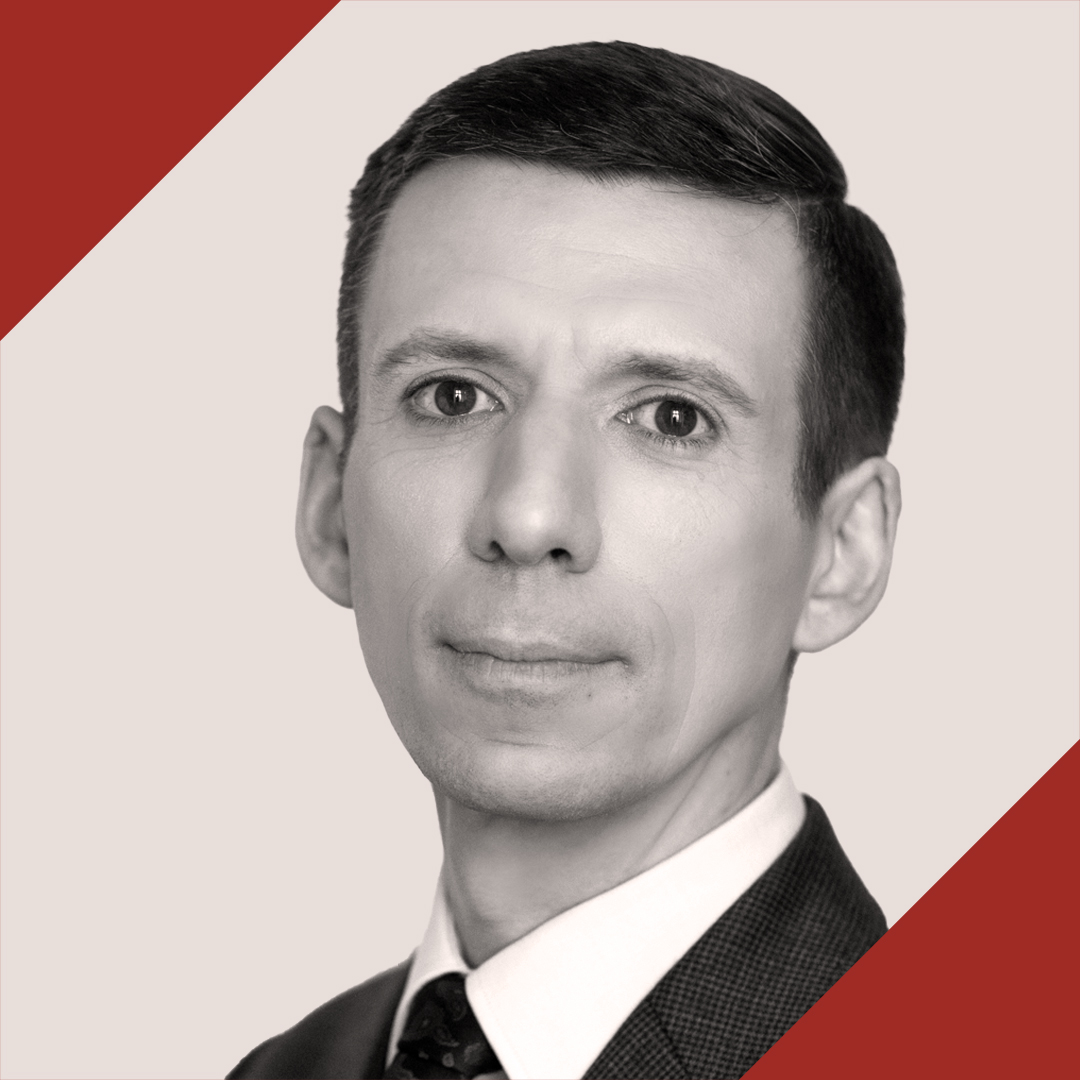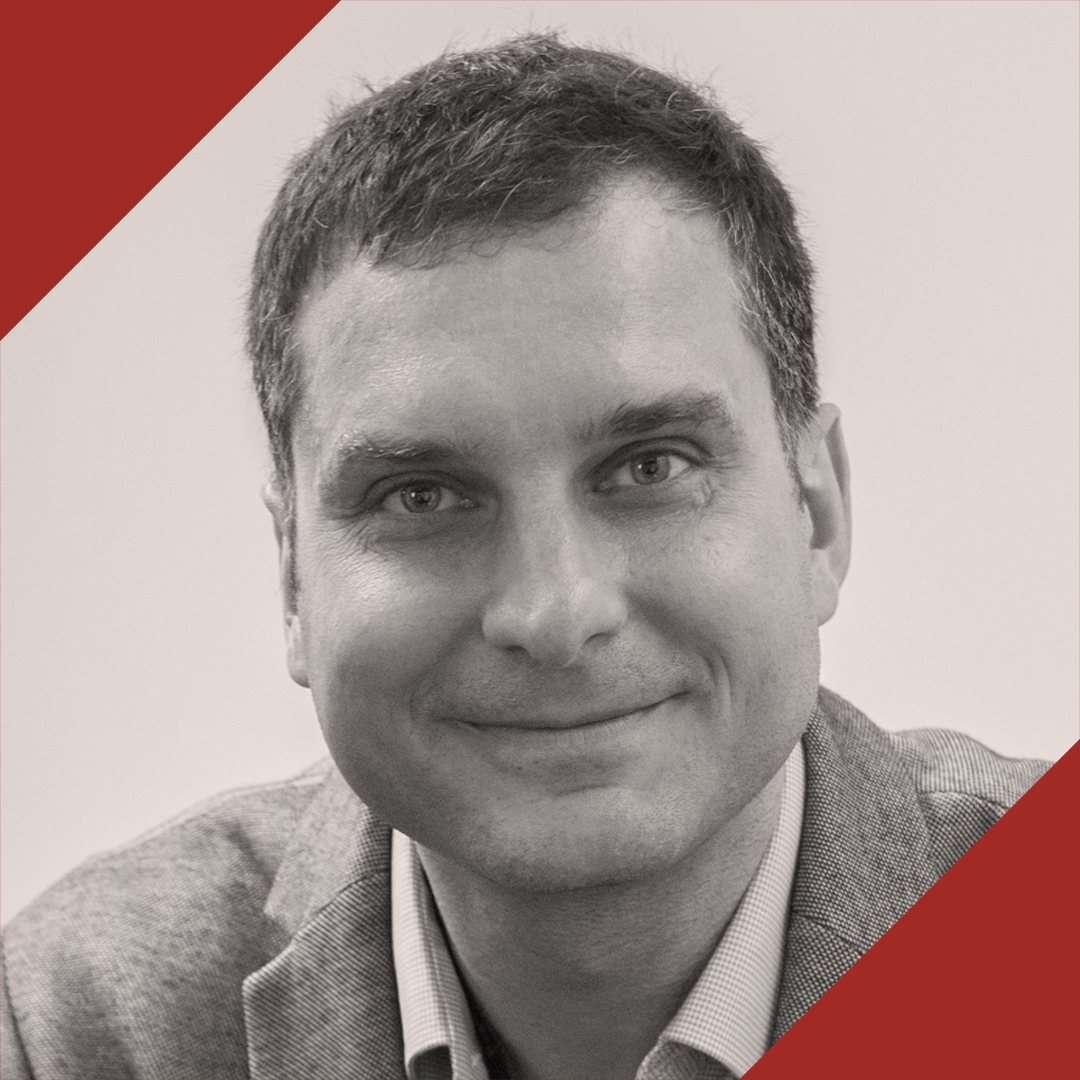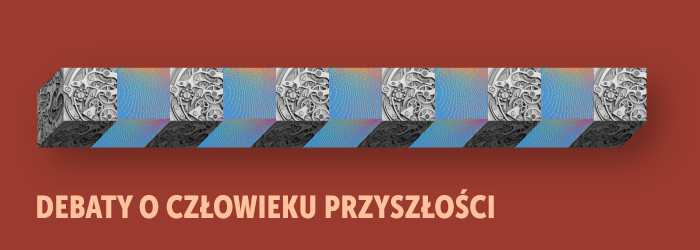- What: Debates
- When: 8 October (Sunday) at 1.00 p.m., 2.30 p.m., 4.00 p.m.
- Where: Auditorium backstage (Conference Centre, level 0)
New scientific and technological accomplishments and possibilities are fascinating and controversial, especially when related to improving the human body. Imagine armies of cyborgs fighting on the frontline, the Olympic Games where athletes with genetic modifications compete, or children with special features ordered in a laboratory. How far can we go in improving the human body? Where is the boundary we should not cross? What changes are we willing to accept? Is the answer always unambiguous? Let’s consider the ethical issues related to research and techniques used in modern biology, biotechnology and medicine.
We invite you to discuss this issue! Experts will present the topics, and participants will be divided into two groups (pros and cons of the proposed concept) and try to convince each other with their arguments. The meeting hosts, Beata Głowacka and Jakub Tołkaczewski, will facilitate this heated debate.
Programme of meetings:
8 October at 1.00 p.m. – Soldier of the Future with Łukasz Kamieński, PhD, from the Faculty of International and Political Studies of the Jagiellonian University
Americans have long been developing projects to improve soldiers through biotechnology: from psychochemicals to genetic profiling, smart military uniforms and exoskeletons to expanding senses and perception. Neurotechnology seems to have particular potential in creating the “super soldier” of the future. The closed-loop interface allows the soldier to modulate their cognitive, emotional and behavioural states automatically and unconsciously, thus preventing a decrease in concentration or mood, improving vigilance performance and increasing working memory. However, combining artificial intelligence and neurotechnology with the human mind raises ethical questions. Are we ready to accept violations of an individual's autonomy and agency? Who will be responsible for the future soldiers’ actions? Are we prepared to accept cyborgization?
8 October at 2.30 p.m. – Athlete of the Future with Paweł Kaliszewski, PhD, from the Polish Anti-Doping Laboratory in Warsaw
In a world where sports results are critical, competition occurs in sports arenas and laboratories. Scientists are looking for ways to push the limits of the human body’s performance. What should the athlete of the future be like? Improved by technology to be able to achieve what is unattainable today? Or instead resemble an ancient athlete, winning prizes thanks to hard work, strong will and natural predispositions? What and how should be done to make the latter possible? How do we ensure athletes do not succumb to the temptation to increase their capabilities through doping? Is that even doable?
8 October at 4.00 p.m. – Ethics of human improvement with Joanna Różyńska, PhD, from the Center for Bioethics and Biolaw at the Institute of Philosophy, University of Warsaw
Imagine a world in which science can safely and effectively interfere with the human genome, improve physical and cognitive abilities, extend human life beyond species boundaries, and design future offspring. For many of us, such a world is a dream come true. Should we strive to make it a reality? Should we change the “nature” of humans and “play God”? Should parents have the right to decide on the level of intelligence, talents, and beauty of their future children?
 Łukasz Kamieński, PhD – academic teacher and author, professor at the Faculty of International and Political Studies of the Jagiellonian University. He focuses on the future of war, biotechnological improvements for soldiers and new military technologies, mainly in the context of the United States.
Łukasz Kamieński, PhD – academic teacher and author, professor at the Faculty of International and Political Studies of the Jagiellonian University. He focuses on the future of war, biotechnological improvements for soldiers and new military technologies, mainly in the context of the United States.
The social and ethical consequences of technical innovations are an important aspect of his analyses. His latest book "Involuntary cyborgs. Brain and war of the future" [Mimowolne cyborgi. Mózg i wojna przyszłości] was published in 2022 by Czarne publishing house. He also wrote other books: "Pharmacologisation of war. The history of drugs on the battlefield" [Farmakologizacja wojny. Historii narkotyków na polu bitwy], "Brave New Soldier. Biotechnological revolution and war of the 21st century" [Nowy wspaniały żołnierz. Rewolucja biotechnologiczna i wojna w XXI wieku], and "Technology and war of the future. Around the nuclear and information revolution in the military" [Technologia i wojna przyszłości. Wokół nuklearnej i informacyjnej rewolucji w sprawach wojskowych].
 Paweł Kaliszewski, PhD – deputy director of the Polish Anti-Doping Laboratory, head of the unit dealing with players’ biological passports. For the past sixteen years, he has conducted scientific and laboratory research in detecting prohibited substances in athletes’ bodies.
Paweł Kaliszewski, PhD – deputy director of the Polish Anti-Doping Laboratory, head of the unit dealing with players’ biological passports. For the past sixteen years, he has conducted scientific and laboratory research in detecting prohibited substances in athletes’ bodies.
He served as an international expert three times in Olympic laboratories in London (2012), Sochi (2014) and Pyeongchang (2018). He is the author and co-author of numerous scientific papers published in Poland and abroad. He was also a member of the Commission Against Doping in Sport.
 Joanna Różyńska, PhD – assistant professor at the Department of Ethics and researcher at the Centre for Bioethics and Biolaw of the Faculty of Philosophy, University of Warsaw. Her scientific interests focus on the ethics of scientific research involving humans, reproductive ethics, human rights and biomedicine.
Joanna Różyńska, PhD – assistant professor at the Department of Ethics and researcher at the Centre for Bioethics and Biolaw of the Faculty of Philosophy, University of Warsaw. Her scientific interests focus on the ethics of scientific research involving humans, reproductive ethics, human rights and biomedicine.
Chairwoman of the Polish Academy of Sciences, and Bioethics Committee and the UNESCO International Bioethics Committee member. She also holds positions in the WHO Research Ethics Review Committee, the Compassionate Use Advisory Committee (NYU School of Medicine, USA), the National Transplantation Council and the Rector’s Committee for the Ethics of Research Involving Human Participants (University of Warsaw).
She authored numerous publications on bioethics and medical law, including "Informed consent to participate in a medical experiment. A guide for researchers" [Świadoma zgoda na udział w eksperymencie medycznym. Poradnik dla badacza] (together with M. Czarkowski), and "From zygote to person. Potentiality, identicalness and termination of pregnancy" [Od zygoty do osoby. Potencjalność, identyczność i przerywanie ciąży]. She publishes, among others, in Bioethics, Journal of Medical Ethics, The American Journal of Bioethics, Bioethics, Medicine Health Care and Philosophy, Journal of Bioethical Inquiry, HEC Forum.


 Łukasz Kamieński, PhD – academic teacher and author, professor at the Faculty of International and Political Studies of the Jagiellonian University. He focuses on the future of war, biotechnological improvements for soldiers and new military technologies, mainly in the context of the United States.
Łukasz Kamieński, PhD – academic teacher and author, professor at the Faculty of International and Political Studies of the Jagiellonian University. He focuses on the future of war, biotechnological improvements for soldiers and new military technologies, mainly in the context of the United States. Paweł Kaliszewski, PhD – deputy director of the Polish Anti-Doping Laboratory, head of the unit dealing with players’ biological passports. For the past sixteen years, he has conducted scientific and laboratory research in detecting prohibited substances in athletes’ bodies.
Paweł Kaliszewski, PhD – deputy director of the Polish Anti-Doping Laboratory, head of the unit dealing with players’ biological passports. For the past sixteen years, he has conducted scientific and laboratory research in detecting prohibited substances in athletes’ bodies.  Joanna Różyńska, PhD – assistant professor at the Department of Ethics and researcher at the Centre for Bioethics and Biolaw of the Faculty of Philosophy, University of Warsaw. Her scientific interests focus on the ethics of scientific research involving humans, reproductive ethics, human rights and biomedicine.
Joanna Różyńska, PhD – assistant professor at the Department of Ethics and researcher at the Centre for Bioethics and Biolaw of the Faculty of Philosophy, University of Warsaw. Her scientific interests focus on the ethics of scientific research involving humans, reproductive ethics, human rights and biomedicine.